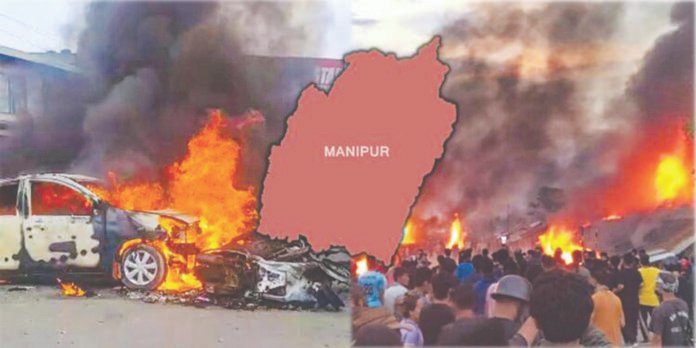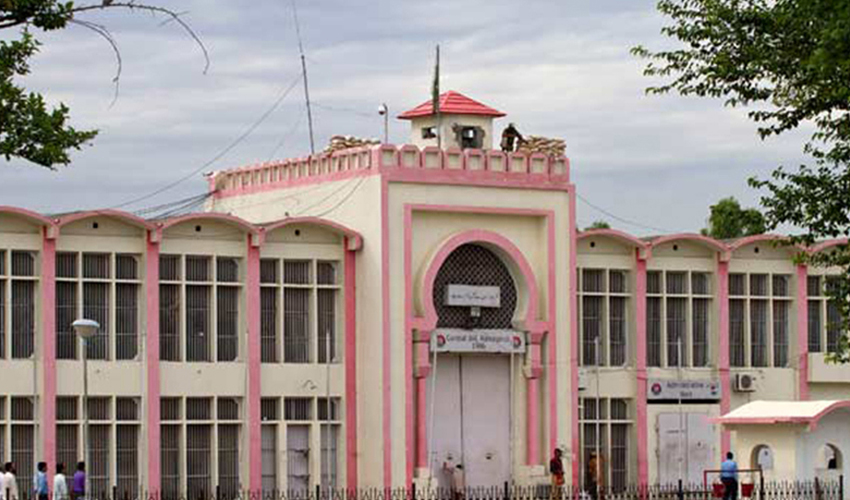Author Name: Muhammad Shahbaz Rajper
The Republic of India has portrayed itself as the world’s largest democracy and a champion of human rights on the international stage. However, this image of India as a protector of democracy and human rights is a facade that crumbles upon closer examination. The ground reality tells a different story, one marred by majoritarian politics, violence against women, minority oppression, and discrimination against the Other Backward Class (OBC). While India has successfully projected itself as a champion of democracy and human rights, the voices of those suffering from injustice remain largely unheard.
Hans J. Morgenthau introduced the concept of the “policy of bluff” in his book, “Politics Among Nations.” In this policy, a state exaggerates its image to gain prestige and advantages on the international stage. The Modi regime has effectively executed this bluff, presenting India as the world’s largest democracy while suppressing any dissenting voices in the international media. This approach has earned India a prominent place in international forums and lucrative economic opportunities. However, it is crucial to shed light on the ground-level issues within Modi-led India.
Despite being the world’s largest democracy, India’s democracy is increasingly characterized by Hindu majoritarianism rather than genuine pluralism. The dominance of Hindu extremism within the BJP has led to a majoritarian approach in Indian politics, driven by the large Hindu population and their support for the party.
The second pillar of democracy is the protection of human rights without any discrimination based on race, ethnicity, or caste. However, India’s constitution includes a caste system, which has resulted in discrimination against the Other Backward Classes (OBCs), Scheduled Castes, and Scheduled Tribes. The existence of this caste system has given rise to caste-based politics and human rights violations, undermining India’s claims as a human rights advocate.
Another bluff from the Indian government is its assertion of secularism, while the BJP’s politics are grounded in the extremist Hindutva narrative. The BJP’s narrative that Hindu identity is synonymous with Indian identity has led to numerous extremist events in the country, accompanied by severe human rights violations.
The National Citizenship Register (NRC), mainly implemented in Assam, is a tool for the systematic exclusion and exploitation of as many Muslims as possible. This technique has allowed the Modi Government to label Assam’s Muslims as illegal immigrants, disenfranchising them and excluding them from Indian society. This demonstrates India’s politics, which are rooted in Hindu supremacy rather than secularism.
In Indian-Administered Kashmir (IAK), following the abrogation of Article 370 and 35A, socio-political and economic injustices have intensified. The self-proclaimed champions of human rights have become the worst violators, with atrocities committed in the Indian-Administered State of Jammu & Kashmir. Mass killings, sexual violence, and brutal torture have been inflicted upon the people of IAK for four years.
The communal riots in Gujarat in 2002, known as the Gujarat Massacre, reveal the extent of brutality and extremism festering in India. Large Hindu mobs targeted the Muslim community, resulting in thousands of deaths, sexual torture, rape, and murder of women. This incident epitomized human rights violations, with targeted killings, arson, looting, and brutal torture. Although the international community criticized the then Chief Minister of Gujarat, who is now India’s Prime Minister, the extremist mindset and communal-based violence persisted.
Manipur, a northeastern state of India, is currently grappling with communal violence fueled by the Modi regime’s extremist Hindutva ideology. The Christian Kuki Community faces torture and humiliation at the hands of the Hindu Meitei community, primarily driven by the caste system and religious superiority. A recent video depicting the naked and brutal rape of two women underscores the deeply rooted extremist mindset of Hindu mobs, particularly those affiliated with the BJP and RSS.
India’s bluff of being the world’s largest secular democracy and human rights protector has earned it prestige on the international stage. However, the ground reality starkly contrasts with this image. The international community must scrutinize India’s true commitment to democracy and human rights and ensure that these principles are upheld. While the Manipur incident has drawn attention from the European Union and the United States, there remains a significant gap between actions and words within the international community.
Subscribe our website for latest updates:
https://republicpolicy.com/shop/
Read More
















